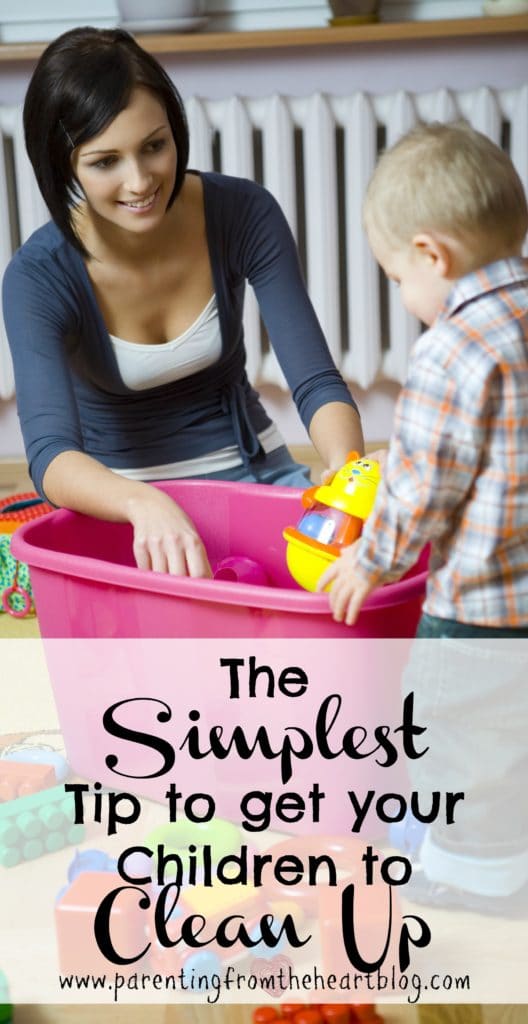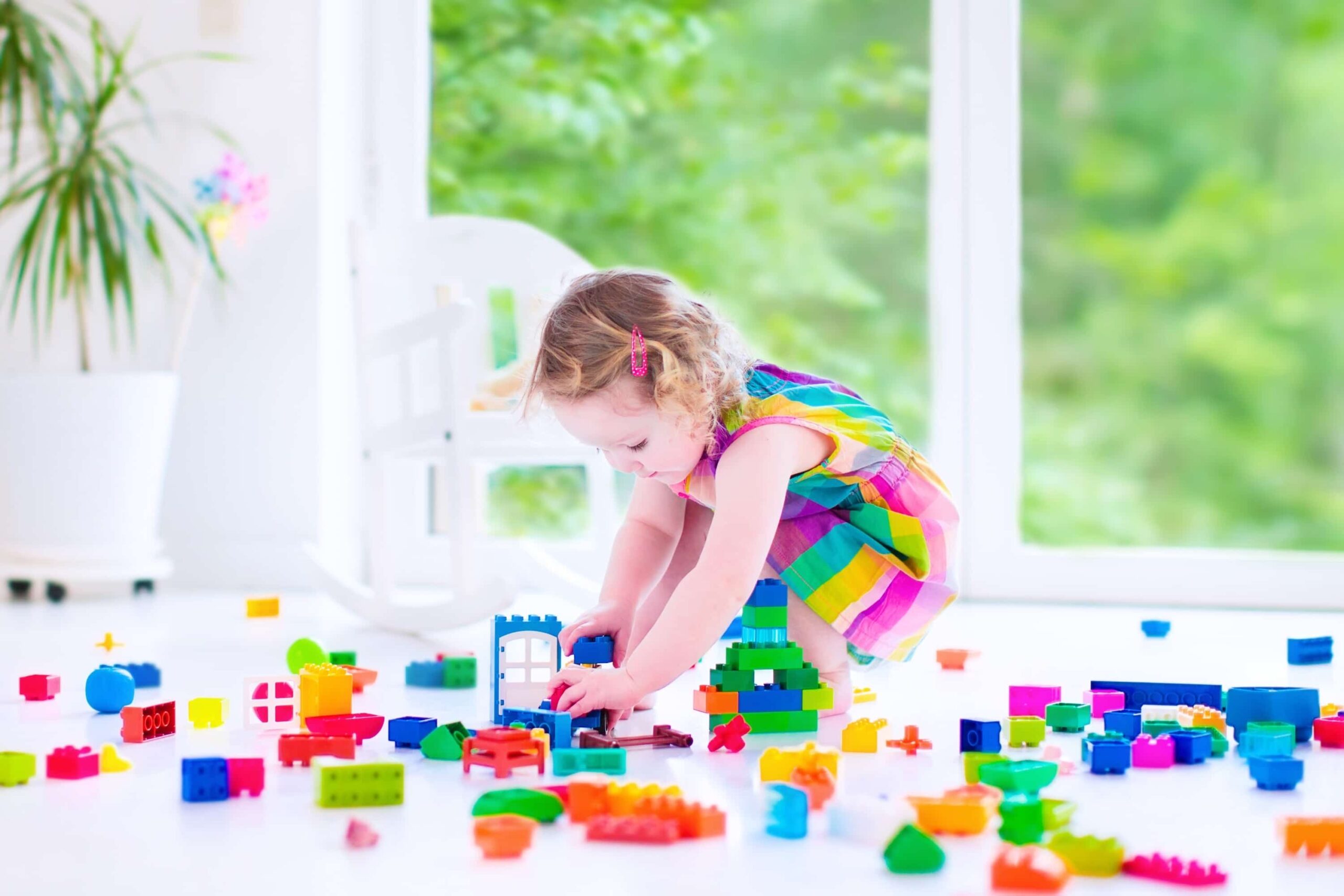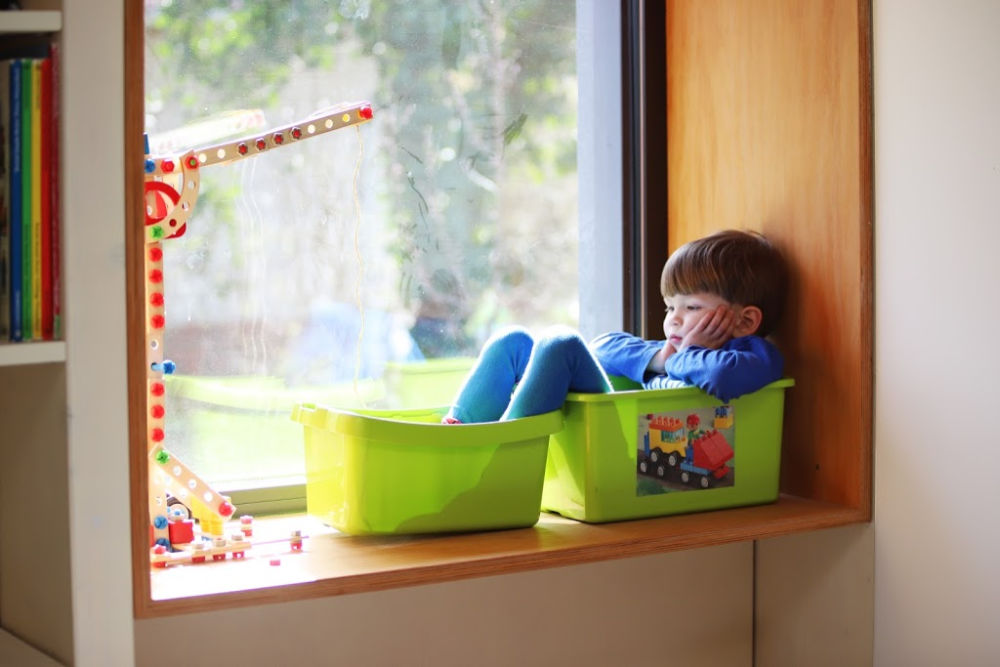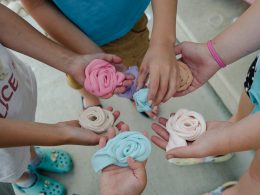My favourite sound in the world is the sound of my kids playing.
The richness of their play is fascinating.
In eavesdropping, I gain a deeper understanding of what they have absorbed about the world. I hear their fears, impressions, and what matters to them unfold in their play scenes. Honestly, it gives me goosebumps. As such, it should come as no surprise that I am an advocate for play-based learning.
Though I encourage my kids to express themselves and explore through play, toy mess can be the bane of my existence. It seems that all of my toy organization can be undone in the time it takes me to unload the dishwasher. And this seems to happen almost every day!
Again, I am very happy to have them play and for their play to be unencumbered. What I am not a fan of is them not cleaning up. All too often, my request for them to put their toys away is meant with whines of, “It’s tooooo haaard!” And, “I doooon’t know hooooow.”
If any parent has found themselves in this situation, wanting to pull their hair out, know I’m with you. It is no fun to set the expectation we have to tidy up and have them act like I’ve asked the world of them in return.
Simple Ways to get your Children to Clean up
There are a number of techniques parents suggest. I’ve heard solutions such as ‘take their toys away.’ Or, “put everything in a garbage bag until they earn it back.” If these solutions have worked for you, props! Really. I tried loading my garage shelf with toys that had been left behind. In our household, it created a lot of initial upset, but no resolve. But I have found some that do get results.
Some tactics I have found to work really well include:
- Establishing a clear expectation from the onset: For instance, when my kids are bringing up toys from the basement, I remind them that they will have to put them away again once finished. They understand we don’t move onto something new before cleaning up. Furthermore, we don’t leave the house before tidying up. That sort of thing.
- Following through on the expectation: Simply not moving forward or waiting until clean-up is complete shows my kids I mean business.
- Setting a timer to create a sense of urgency: I set just enough time that my kids have a fair chance of beating the buzzer. Urging them on, I say “On your mark, get set, go!” It doesn’t work every single time, but it’s definitely largely effective. This tactic also helps resolve their otherwise unbelievably slow approach.
But there are those times where no matter what I do, I am met with “I don’t want to.” And, “It’s too hard.” And during those times, the above-mentioned strategies only go so far.
The Most Effective Strategy to get your Children to Clean up

Of any strategy I’ve used, the most effective one to get my children to clean up is undoubtedly scaffolding. If you’re unfamiliar with the zone of proximal development, scaffolding on the side of a building may come to mind. And, that’s very apt. The entire premise behind scaffolding in developmental psychology is to provide your child with the support they need to complete a task or exhibit a skill. For instance, a child who cannot successfully count to 20 can do it when a parent puts their hand over their child’s and they count in unison. In this example, all it takes is the parent by their side and the support makes counting easier to do.
[bctt tweet=”This is the most effective way to get your children to clean up. #parenting #kids” username=”parentfromheart”]
In the case of getting your children to clean up, scaffolding can take shape in a number of ways.
- You can offer support by holding the container that they need to put their toys into.
- Offer to work together. You will clean up as long as they’re cleaning too.
- Point out toys that they may miss.
- Come along beside them as they tidy up. This simple offer of support will likely pay dividends in getting the house tidied.
In no way does this mean you should do it for them. However, by stopping what you are doing, remaining calm, and gently helping them, power struggles dissipate and the cleaning gets done.
For more parenting tips like this, be sure to join our newsletter.












